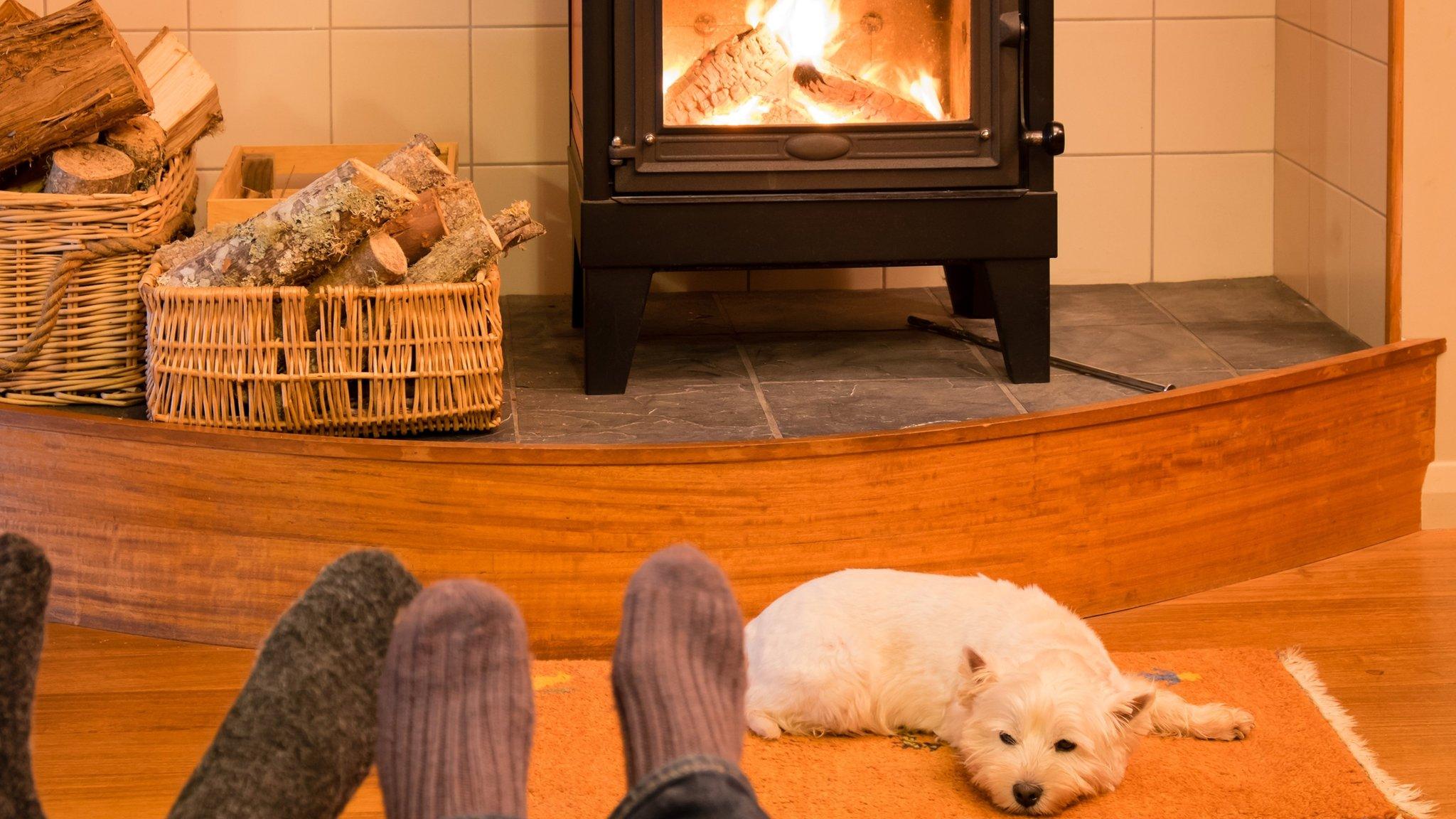Cost of Living: How you're delaying switching on the heating
- Published
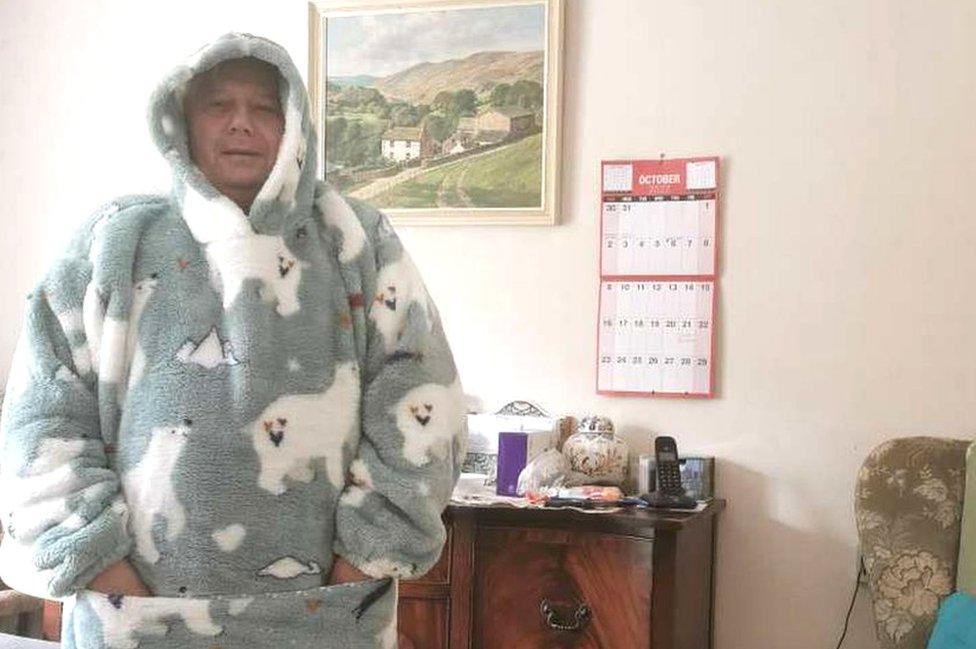
Dave Richards relies on his "oodie" to stay warm
As energy bills rocket and the cost of living rises, we asked how you're managing to delay switching on the heating this autumn.
From wearing boiler suits, to opening the oven door after cooking, you shared your tips for staying warm.
1. From "oodies" to knitted socks, wear more clothes
By far the most popular suggestion from BBC website readers is just to wear more clothing. Above, Dave Richards from Devon is wrapped up in his warm oversized jumper-blanket, his "oodie". Dave, 73, has cancer and arthritis, but says he feels positive he will get through the winter in reasonable comfort.
Official advice is to be careful - the NHS says, external people with ongoing health conditions, older and more vulnerable people, should heat their home to 18 degrees Celsius to help stay well. But many are struggling.
Dave says he has been preparing for winter by trying to reduce his energy bills as much as possible. His "wearable blanket (with arms and hood)" goes down to his ankles and keeps him very warm.
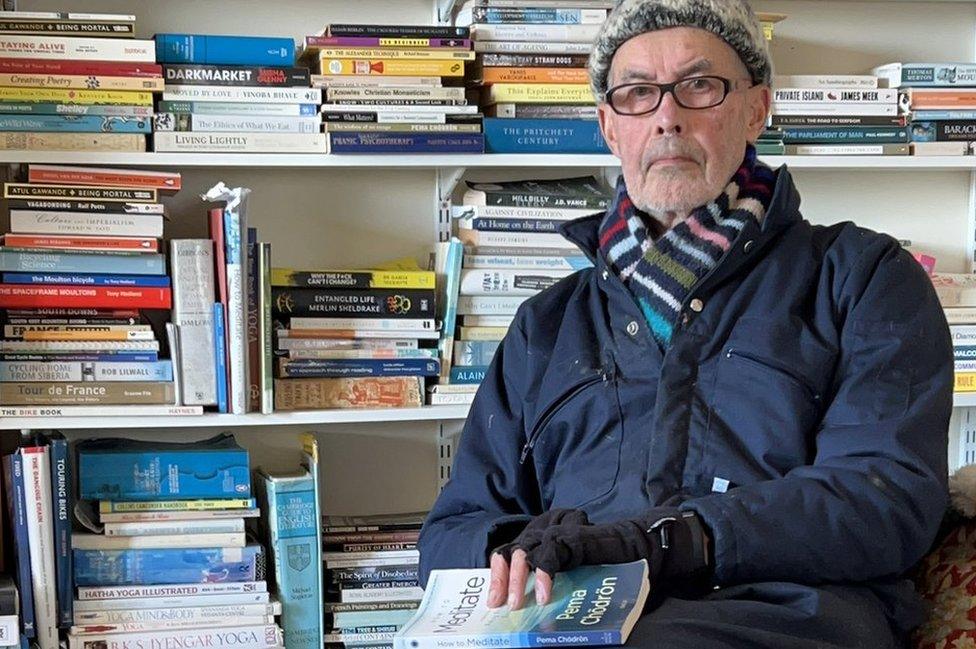
Rob Russell has invested in outdoor work gear
In East Sussex, Rob Russell, 84 has bought a new boiler suit. He says it "feels as if I'm dressed for working in the Siberian tundra! But I'm cosy and ready for the cold weather and have minimal heating costs".
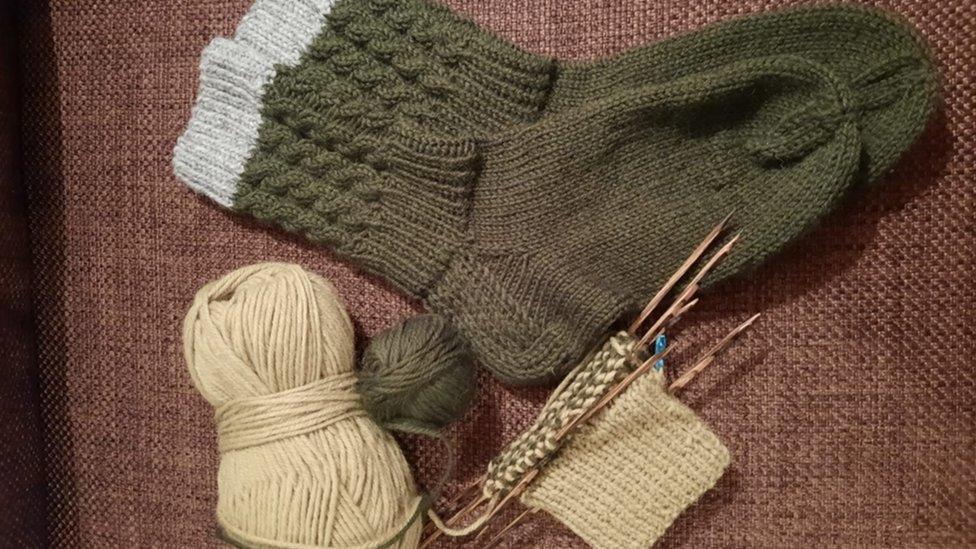
Charles Dean in East London has been knitted woolly socks to keep him warm by a friend in Finland - where October temperatures average five degrees Celsius. . Many of those who got in touch suggested fleeces, jumpers and thermal vests are the essential extra layers of clothing that mean they can delay switching on their heating.
2. "Alternative" energy sources
Opening the oven door - but after cooking - is one popular method used to heat the house. One correspondent describes it as a "free blast of hot air" while another says the residual heat boosts the temperature in their kitchen.
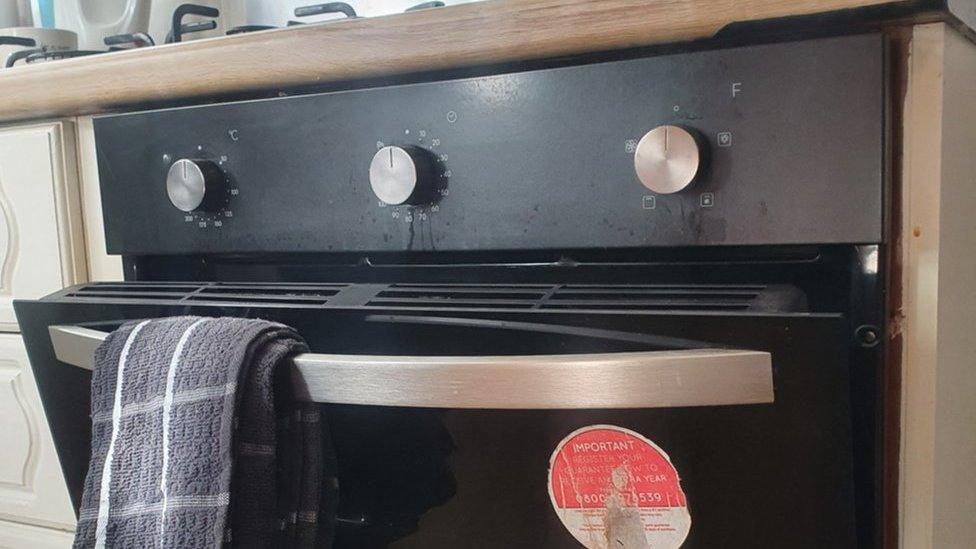
Zhanelya Subebayeva's oven - not just for cooking
Zhanelya Subebayeva from Westcliff-on-Sea says she always leaves her oven door open after cooking, as the hot air heats the rest of the house.
Deborah Lemon in Buckinghamshire says she stays in the kitchen after cooking, to make the most of the heat it creates.
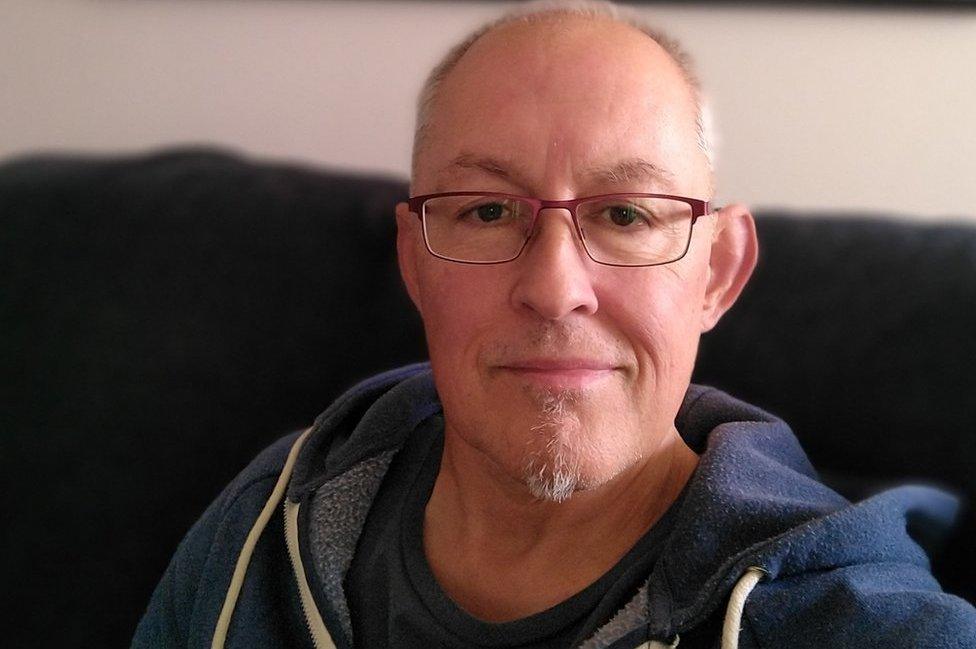
Greg Sharpe asks his smart speaker
Greg Sharpe, 62, from just outside Basingstoke employs tech. He uses his smart speaker to tell his smart thermostat what to do.
"Through the winter I have that set very low," he says, "typically below 17 degrees, so that it won't come on automatically during the day and it's set to be completely off overnight.
"I can use the 'boost for x minutes' option to temporarily turn it up for 15 or 30 minutes if I'm feeling cold," says Greg - although factors like insulation can make a difference to how your home holds on to that heat.
He tells us he is "comfortable at 17.5 degrees."
3. Changing your home
Readers have been using thermally lined curtains, blinds and drapes to block draughts and windows. For many those coverings stay closed unless there's sunshine. One reader says she bought curtains from charity shops - any curtains to help insulate her windows.
Meanwhile, Andy Read in Bournemouth is gradually adding more insulation to his loft every year. Others of you have been using foil behind radiators to reflect heat back into rooms from the wall, or air dryers in greenhouses to dry your clothes.
Jane Reed, in York opens the front door of her flat onto the glass atrium in the block's stairwell to harvest the heat.
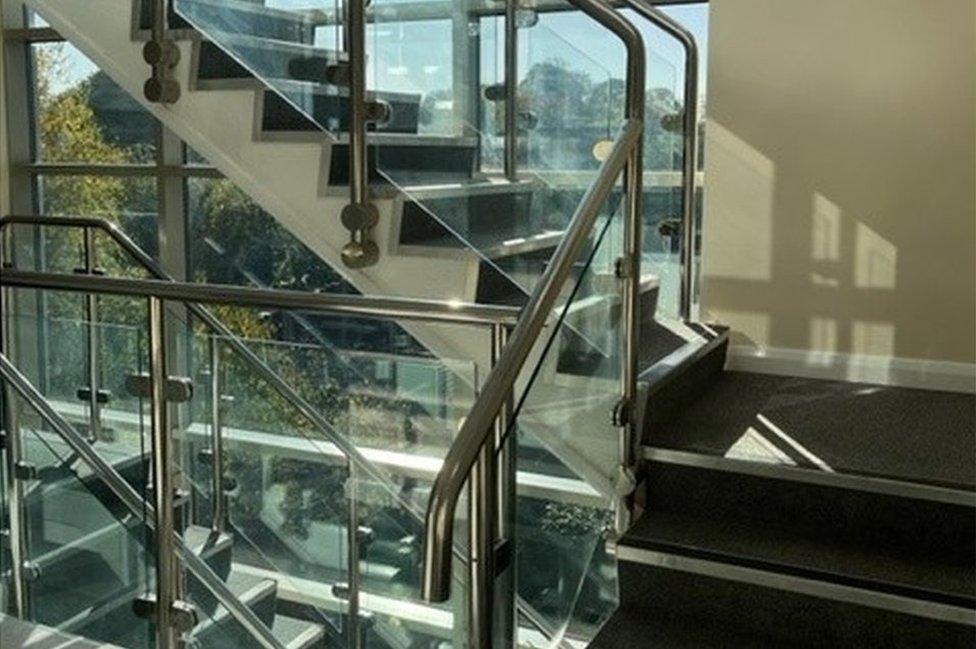
Jane Reed has been making the most of a stairwell
She tells us the south-facing atrium acts as a solar collector with its large, glass windows.
"My flat is north-facing, but the block has a large glass atrium that faces south, where the stairs are. I think this may well contribute to my flat maintaining 19 degrees without heating."
On sunny days, Jane experiments with opening her flat door for about an hour when the atrium is often at about 23 degrees to see if she can increase the temperature in her flat. She wonders if people could use conservatories in a similar way on sunny days.
4. Blankets, candles, PJs - and so to bed
Many of you shared your tactics for keeping cosy as the nights draw in and temperatures plummet.
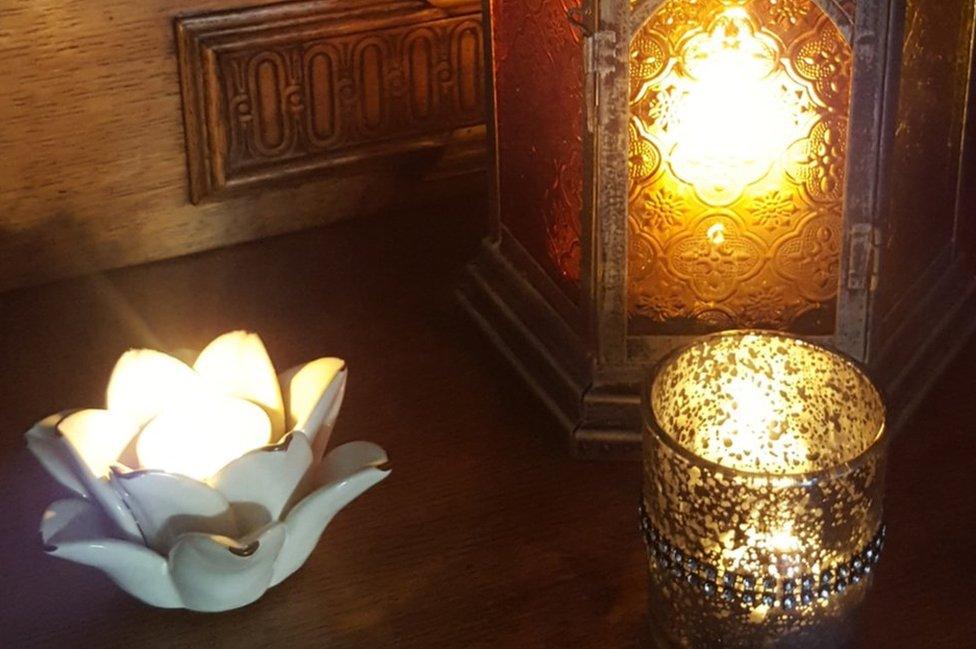
Many readers are turning to candles for light and warmth
Yos Kimura in Milton Keynes places an extra blanket on each bed in his house at night as well as using candles - including a candlelit dish-warmer, designed to keep food warm - as an alternative energy source during the day. Yos has his thermostat set to 10 degrees.
Using wax candles comes with a safety warning, however, as they are a common cause of domestic fires. Fire brigades advise putting candles out before you leave a room and before bed; keeping them away from flammable materials, pets and children; and that tea light holders can make surfaces meltingly hot.
Gillian Mallett suggests throwing a coat over the bed as not everyone has, or can afford a blanket. "Use something woolly or fleecy - cotton will not hold the heat in," is her tip.
For Viv Bolton in West Sussex, it's about preparation. She fills her hot water bottle and places it in her bed about half-an-hour before bedtime. Then, she places her warmest pyjamas on top creating a "lovely and warm bed".
A few have suggested watching TV from bed rather than from the living room, to save money on heating two spaces. Neil May in Scotland goes to bed at 20:00 or earlier, "with hot chocolate and plenty of books". He says it makes for a "peaceful winter" in otherwise tumultuous times.


We want to hear how you are budgeting in the countdown to Christmas. What are your tips for affording the festive season as prices rise? Share your experiences by emailing haveyoursay@bbc.co.uk, external.
Please include a contact number if you are willing to speak to a BBC journalist. You can also get in touch in the following ways:
WhatsApp: +44 7756 165803
Tweet: @BBC_HaveYourSay, external
Please read our terms & conditions and privacy policy
If you are reading this page and can't see the form you will need to visit the mobile version of the BBC website to submit your question or comment or you can email us at HaveYourSay@bbc.co.uk, external. Please include your name, age and location with any submission.
Related topics
- Published18 October 2022
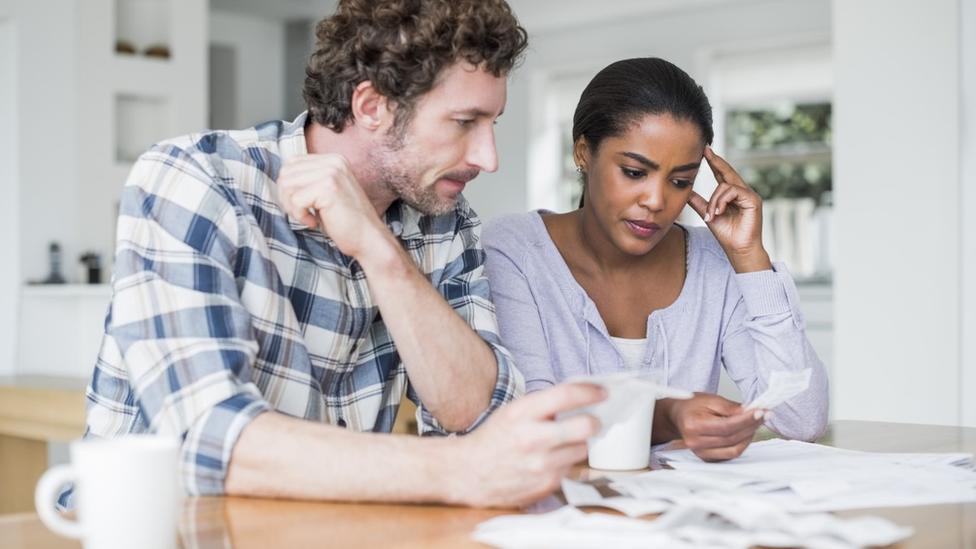
- Published11 October 2022
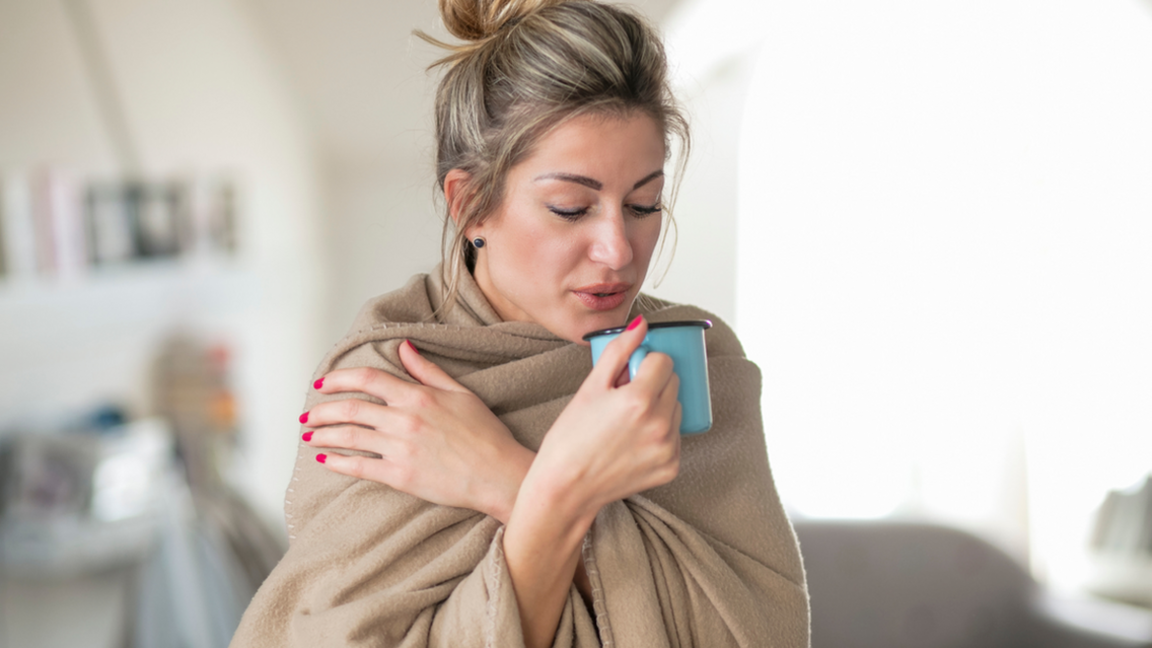
- Published18 October 2022
